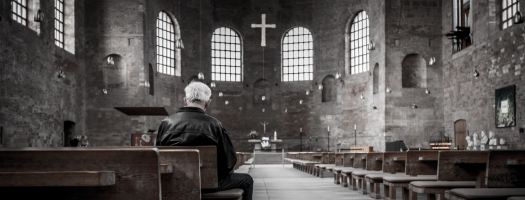Let us not become weary in doing good, for at the proper time we will reap a harvest if we do not give up. Galatians 6:9
Doing good does not often bring immediate results. In fact, most of the time doing good is a quiet, under the radar, unassuming endeavour.
We live in a world dominated by social media algorisms that amplify anger, offence and outrage. So, doing good doesn’t receive the loudest applause. Particularly when it contrasts with and contradicts the prevailing ideologies and power structures. Jesus did a lot of good and look where it got him.
Here we are encouraged to remember how God has a very long-term plan. No matter what our current human condition is, God’s promise is that the truth will win out and good will ultimately reap a harvest. That is what the resurrection reminds us and why we hope in resurrection in small ways now and a big way in the future.
I live in that optimistic hope every day. It gets me up in the morning.








